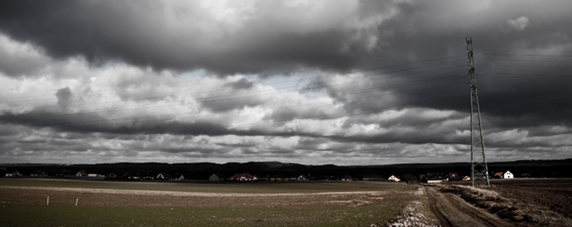Every year, millions of people in the United States are impacted by severe weather. Even though we know there is always a possibility for ourselves to be impacted, I know that many people tend to not prepare for the chance of severe weather. Also, part of preparing is knowing how to prepare and I feel like most preparation tactics aren’t shared until the weather is already here.
How to stay informed about severe weather
One of the first steps to preparing for severe weather is to stay informed of the weather in your area or areas you are traveling to.
Several outlets can help you to stay informed of severe weather:
- Internet Sites: Local News, Yahoo Weather, The Weather Channel
- Apps: Local News, The Weather Channel, Yahoo Weather
- TV: Local News, The Weather Channel
- Local Radio Stations
- Local Newspapers
- Social Media: Local News, The Weather Channel, Local Newspapers
By following and regularly checking the above outlets, you can do your best to stay informed about potential severe weather that is headed towards you.
Another thing to consider is studying and learning these various weather terms associated with severe weather:
- Excessive Heat Watch / Warning
- Heat Index
- Flash Flood
- Flash Flood Watch
- Flash Flood Warning
- Severe Thunderstorm
- Severe Thunderstorm Watch
- Severe Thunderstorm Warning
- Tornado Watch
- Tornado Warning
Should I have an emergency disaster plan for my family?
This answer is easy…ABSOLUTELY. Having an emergency disaster plan for your family can be used in multiple scenarios whether caused by severe weather or not.
To create your emergency disaster plan, answer these questions:
- What are possible emergencies you and your family might face in your area of the country?
- How will you and your family evacuate or escape your home if you need to?
- Where will you meet your family members if all of you are not home at the time of evacuation?
- What route will you and your family take out of your neighborhood and town if you need to leave? What is your backup route?
- What supplies will you take with you?
- What types of supplies will you and your family need to “shelter in place”? Do you have enough of these items?
- What are your neighborhood or community warning signals? Do you and other family members know what they sound like and what they mean?
- What resources, organizations, and emergency services are in your community that can help in an emergency? What is your backup plan if help is unable to reach you and your family?
- Have you contacted any local organizations to let them know that someone in your family has special needs in the event of an emergency?
- Do you have a place for your pets if you need to leave your home? Will you be able to take them with you wherever you are going?
- Do you have an emergency contact person who lives out of the area? Does your family know that person’s telephone number and to call that person if they need to get in touch with you?
- Do you have supplies prepared that you can take with you?
- Does everyone in the house know where it is?
- Has someone been given the job of taking it if you and your family have left?
- Do you have a backup person to check on the go-bag? Who is that person?
- Do you have a plan for using the supplies in your go-bag so they do not expire?
- Do you know the emergency plan(s) of the school(s) your children attend?
- Do you know your workplace’s emergency plan if one or more family members are working?
Next steps to take
Preparing for severe weather is key to protecting your family but, educating can help too. Check out this family friendly video to help educate your family members on severe weather:
Also, check out these resources for more helpful information on how to properly prepare for severe weather:
Sources: CDC

Leave a Reply
You must be logged in to post a comment.